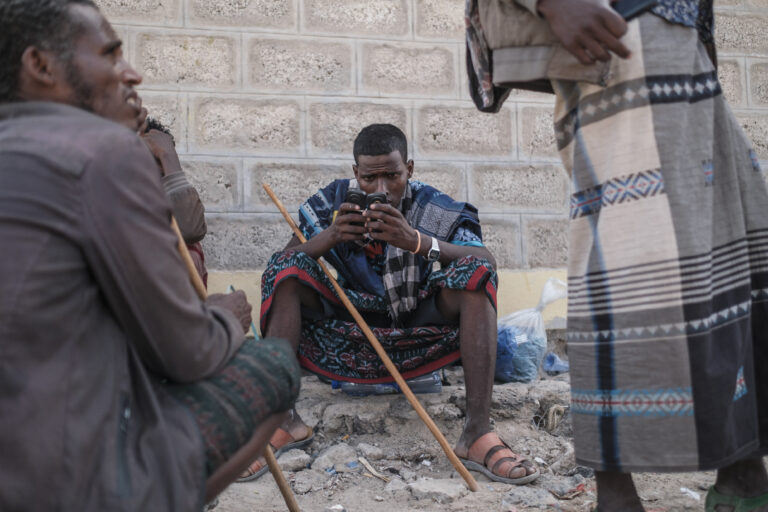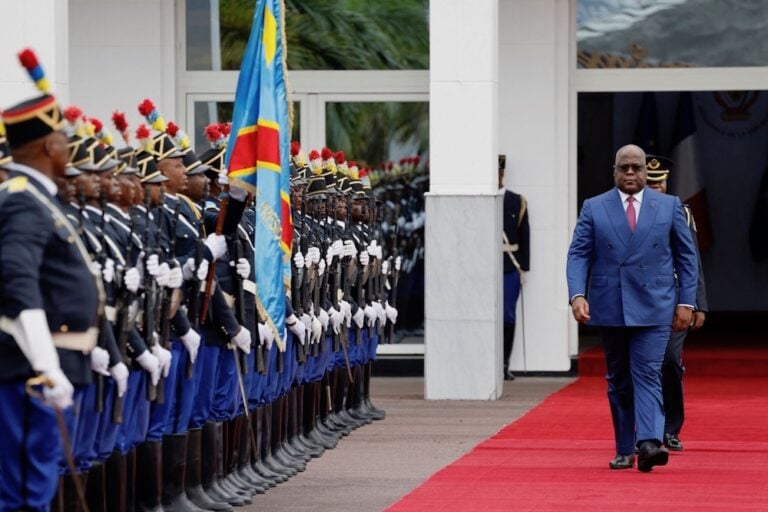Ethiopia's state of emergency legislation is paving the way for security personnel to attack the media sector without judicious oversight.
This statement was originally published on cpj.org on 5 October 2023.
The Committee to Protect Journalists on Thursday called on Ethiopian authorities to immediately release three journalists detained in late August and early September, and expressed grave concern about a pattern of detaining journalists amid an ongoing state of emergency.
On August 26, 2023, police arrested Tewodros Zerfu, a presenter and program host with the online media outlets Yegna TV and Menelik Television, while he was chatting with a friend at a cafe in the Ethiopian capital Addis Ababa, according to reports from the outlets and accounts from his sister Seblework Zerfu and Yegna TV founder Engidawork Gebeyehu, who spoke to CPJ by messaging app.
Four days later, on August 30, two security officers in civilian clothing arrested Nigussie Berhanu, a political analyst and co-host of “Yegna Forum,” a biweekly political show on Yegna TV, according to Yegna TV reports, Engidawork, and a family member who spoke to CPJ on condition of anonymity, citing safety concerns.
On September 11, seven federal police officers arrested Yehualashet Zerihun, the program director of the privately owned station Tirita 97.6 FM, at his residence in Addis Ababa, according to a report by Tirita and Yehualashet‘s wife Meron Jembere, who spoke to CPJ via messaging app. Meron said she had not been given any specific reason for his arrest to date.
The three journalists were initially detained at the Federal Police Crime Investigation Center in the capital of Addis Ababa, but have since been transferred to a temporary detention center at a military camp in Awash Arba, a town in Afar State that is about 240 miles (145 kilometers) east of Addis Ababa, according to the people who spoke to CPJ. Those sources said they were not aware of the journalists being presented in court or formally charged with a crime.
“The detention of journalists at a military camp, under unclear judicial oversight, is a deeply worrying sign of the depths to which Ethiopia’s regard for the media has sunk,” said CPJ sub-Saharan Africa representative, Muthoki Mumo. “Authorities should release journalists Tewodros Zerfu, Yehualashet Zerihun, and Nigussie Berhanu, as well as other members of the press detained for their work.”
Ethiopia declared a six-month state of emergency on August 4, 2023, in response to the conflict in northern Amhara state involving federal government forces and the Fano, an armed militia, according to media reports. Since then, CPJ has documented the detention of at least four other journalists in Addis Ababa, two of whom remain detained, also in Awash Arba.
The state of emergency legislation gives security personnel sweeping powers of arrest and permits the suspension of due process of law, including the right to appear before a court and receive legal counsel.
In addition to his role as a program director, Yehualashet was a host and co-host of three weekly radio shows, “Negere Kin,” “Semonegna,” and “Feta Bekidame,” focusing on art and social issues.
According to CPJ’s review of their work, Tewodros and Nigussie usually appeared together on Yegna TV’s regular program, “Yegna’s Forum,” and their commentary and reporting is published on Yegna TV’s YouTube channel, which has over 600,000 subscribers. “Yegna Forum” is a mostly political program, which has been critical of the Ethiopian government. Prior to their detention, they had discussed the ongoing Amhara conflict, criticizing the passing of the state of emergency decree, and questioning the neutrality of the Ethiopian National Defense Force.
A few days before his detention, Nigussie made a Facebook post in which he alleged that he was “perceived as a threat” to the government, and had been “identified as a target.”
CPJ’s queries sent via email to federal police spokesperson Jeylan Abdi and the office of the federal minister of justice were unanswered. Government spokesperson Legesse Tulu did not respond to queries sent via messaging app and text message.



